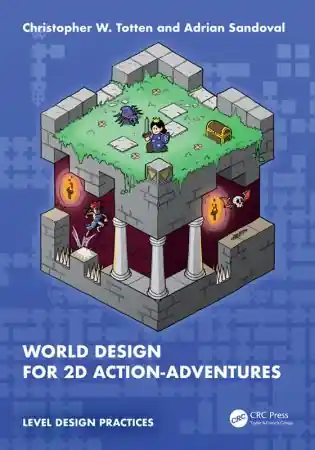
GLSL Essentials
- Length: 116 pages
- Edition: 1
- Language: English
- Publisher: Packt Publishing
- Publication Date: 2013-12-26
- ISBN-10: 1849698007
- ISBN-13: 9781849698009
- Sales Rank: #4972340 (See Top 100 Books)
Enrich your 3D scenes with the power of GLSL!
Overview
- Learn about shaders in a step-by-step, interactive manner
- Create stunning visual effects using vertex and fragment shaders
- Simplify your CPU code and improve your overall performance with instanced drawing through the use of geometry shaders
In Detail
Shader programming has been the largest revolution in graphics programming. OpenGL Shading Language (abbreviated: GLSL or GLslang), is a high-level shading language based on the syntax of the C programming language.With GLSL you can execute code on your GPU (aka graphics card). More sophisticated effects can be achieved with this technique.
Therefore, knowing how OpenGL works and how each shader type interacts with each other, as well as how they are integrated into the system, is imperative for graphic programmers. This knowledge is crucial in order to be familiar with the mechanisms for rendering 3D objects.
GLSL Essentials is the only book on the market that teaches you about shaders from the very beginning. It shows you how graphics programming has evolved, in order to understand why you need each stage in the Graphics Rendering Pipeline, and how to manage it in a simple but concise way. This book explains how shaders work in a step-by-step manner, with an explanation of how they interact with the application assets at each stage.
This book will take you through the graphics pipeline and will describe each section in an interactive and clear way. You will learn how the OpenGL state machine works and all its relevant stages. Vertex shaders, fragment shaders, and geometry shaders will be covered, as well some use cases and an introduction to the math needed for lighting algorithms or transforms. Generic GPU programming (GPGPU) will also be covered.
After reading GLSL Essentials you will be ready to generate any rendering effect you need.
What you will learn from this book
- Use vertex shaders to dynamically displace or deform a mesh on the fly
- Colorize your pixels unleashing the power of fragment shaders
- Learn the basics of the Phong Illumination model to add emphasis to your scenes
- Combine textures to make your scene more realistic
- Save CPU and GPU cycles by performing instanced drawing
- Save bandwidth by generating geometry on the fly
- Learn about GPU Generic programming concepts
- Convert algorithms from CPU to GPU to increase performance
Approach
This book is a practical guide to the OpenGL Shading Language, which contains several real-world examples that will allow you to grasp the core concepts easily and the use of the GLSL for graphics rendering applications.
Who this book is written for
If you want upgrade your skills, or are new to shader programming and want to learn about graphic programming, this book is for you. If you want a clearer idea of shader programming, or simply want to upgrade from fixed pipeline systems to state-of-the-art shader programming and are familiar with any C-based language, then this book will show you what you need to know.
Table of Contents
Chapter 1: The Graphics Rendering Pipeline
Chapter 2: GLSL Basics
Chapter 3: Vertex Shaders
Chapter 4: Fragment Shaders
Chapter 5: Geometry Shaders
Chapter 6: Compute Shaders







